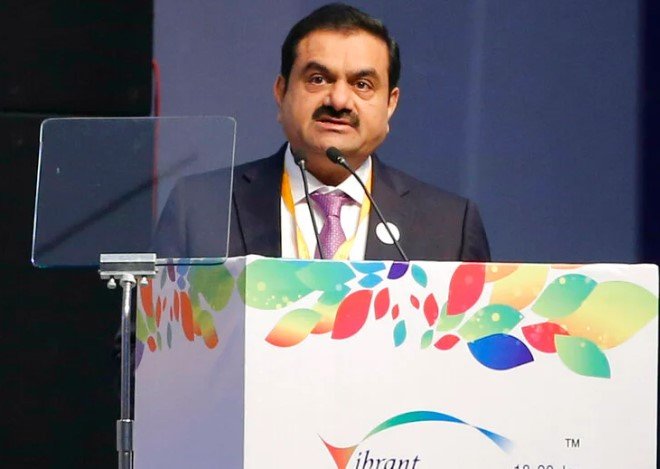Adani Moves to Divest from FMCG Business to Focus on Core Infrastructure
In a strategic shift, the Adani Group is selling its 44% stake in Adani Wilmar, the joint venture with Singapore-based Wilmar International, for $2 billion. This sale marks the end of Adani’s 25-year involvement in the fast-moving consumer goods (FMCG) sector and signals a renewed focus on its infrastructure business, a core strength of the group.
The sale follows mounting pressure on the group’s financials after recent controversies, including allegations of securities fraud by US authorities. The capital generated from this deal will aid in addressing the Adani Group’s liquidity challenges and its focus on infrastructure development.
The Terms of the Deal
The transaction involves Wilmar International acquiring a 31% stake from Adani at Rs 305 per share, valuing the transaction at $1.4 billion. This will increase Wilmar’s stake in Adani Wilmar to 75%, up from the current 44%. This move is in line with Indian regulations that require public shareholders to maintain at least a 25% stake, with promoters’ holding capped at 75%.

The remaining 13% of Adani Wilmar’s shares will be offered to the public through an offer for sale, thereby ensuring that public ownership requirements are met. Currently, the public holds 12%, meaning the new offer will slightly increase this proportion.
This move signifies the end of the Adani Group’s venture into the FMCG sector, particularly in the staples market, which has seen brands like Fortune sunflower oil and Kohinoor basmati rice gain significant traction over the years.
Adani’s 25-Year Staples Business Journey Comes to a Close
The sale marks the conclusion of Adani’s quarter-century presence in the FMCG sector. The joint venture between Adani and Wilmar International, known for its popular brands in the edible oil and rice markets, was initially formed to tap into India’s rapidly growing demand for packaged food products.
While the group has seen some success in this sector, the sale signals a pivot towards its more profitable infrastructure and energy businesses. Over the years, the group expanded its presence in multiple sectors, ranging from logistics to power generation, contributing significantly to India’s infrastructure growth.
In addition to relinquishing its stake, the Adani Group will also see the departure of two key figures from Adani Wilmar’s board: Pranav Adani, the nephew of Gautam Adani, and Malay Mahadevia, a childhood friend of Gautam Adani. Both have stepped down in light of the group’s shift in focus.
Financial Impact and Group’s Future Plans
The $2 billion raised from the sale of its stake in Adani Wilmar will help the group bolster its core infrastructure operations. The sale will also improve liquidity, a crucial factor for the group as it continues its ambitious infrastructure projects.
The Adani Group has faced considerable challenges in recent months. Most notably, US regulators have raised concerns regarding the company’s operations, accusing Gautam Adani of involvement in a bribery scandal linked to Indian power contracts. Although these allegations have been denied by the Adani Group, the controversy has nonetheless cast a shadow over the group’s financial dealings.
A month before this deal, the group divested its financial services business to US-based private equity firm Bain Capital, signaling a shift towards focusing on more stable and lucrative sectors. The recent sale of Adani Wilmar is in line with this broader strategy.
What’s Next for Adani Wilmar?
Following the sale, Adani Wilmar will undergo a rebranding process. The company will either be renamed AWL, AWL Agri Business, or Fortune Agri Business, reflecting its shift away from FMCG and focusing more on its agricultural and commodity businesses.
The company’s operational shift may also impact the future of its flagship brands, such as Fortune oil and Kohinoor rice. Analysts are keen to see how Wilmar International manages this transition and whether it will maintain Adani Wilmar’s market leadership in the edible oil and rice sectors.
As for the Adani Group, the sale of its stake will likely pave the way for a more concentrated focus on its infrastructure projects. With billions in capital freed up from this transaction, the group is expected to invest heavily in energy, logistics, and transportation, sectors where it has already made significant strides.
